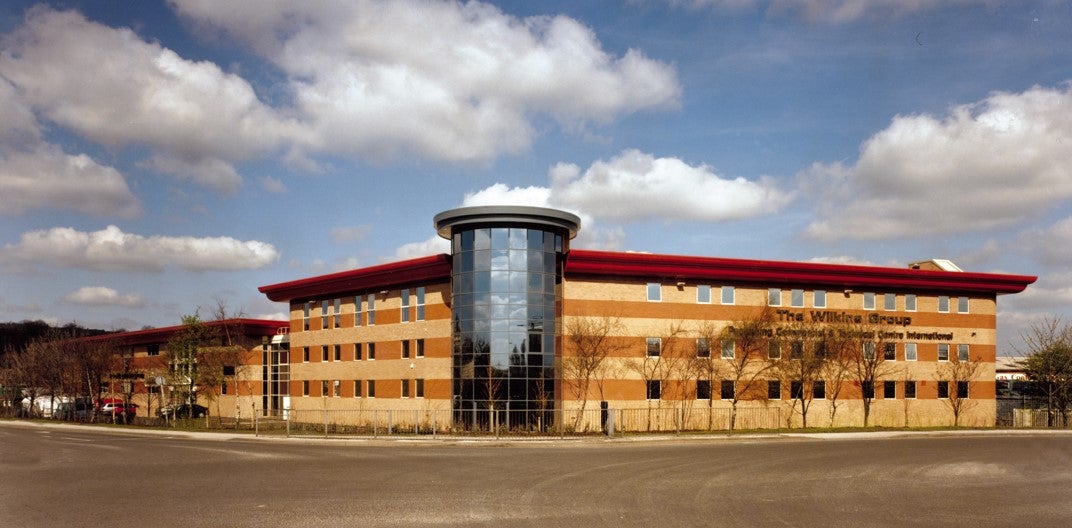For businesses in the field of large-scale manufacturing, a critical factor that determines their future and success is a key decision made at their very inception – the location.
More often than not, businesses in these fields which start operations in their respective nations look into expanding into international markets to set up base, to further streamline their supply and demand management.

During this stage, some key aspects that businesses would consider a location to satisfy include easy trade access, consumer/market proximity, overall affordability and talent with sound literacy.
For us at The Wilkins Group, one of the world’s largest family-owned entities in textile and food packaging based in the UK, it was important to maintain a strong hold on the apparel industry that was rapidly relocating.
In the 90s, most textile firms were relocating to Sri Lanka, and backed with a lot of compelling reasons. Our Group ventured into Sri Lanka and set up its first offshore factory in 1999 through a joint venture agreement with Sri Lankan blue chip conglomerate Aitken Spence, creating Wilkins Spence Packaging Lanka (Pvt) Ltd.
One reason for picking Sri Lanka was that communication was not a barrier, all of us spoke the same language, and most of our customers also came to the market and set up factories there to take advantage of the location.
Another reason is the fact the country rests along the main trade route to China, with easy access to other South Asian markets of interest, so it was even more compelling to opt for Sri Lanka. Other regions have been more expensive and more restrictive in quite a lot of ways. Sri Lanka in comparison has been benefiting from this.
Our Group also benefited from receiving approval from the Board of Investment of Sri Lanka (BOI), which was an important factor in supporting us and sporting the concept of us coming over and bringing over all our technology and training everybody.
Soon, our Group acquired full ownership of the factory which encouraged us to invest in more suitable machinery and expansions, to meet the affordability and flexibility requirements of our customers. Our operations continued despite external factors which would have theoretically deterred our capabilities and performance.
Sri Lanka saw the end of a 30-year civil war, survived a global pandemic, has been a victim of political coups and faced a catastrophic economic crisis. But despite all restrictive measures, businesses were still able to operate.
Most local authorities as well as the BOI have shown exceptional interest and support to ensure that businesses operate without any shortfall. This was felt by us at The Wilkins Group as when the logistics aspect of our business was halted due to the lockdown during the pandemic; authorities were quick to assist to continue our operations, closing the factory for a total of only three days. The factory hasn’t had to shut down a single day since.
The most recent challenges we faced were with power cuts and inflation. The lack of fuel has also been adverse, as we’ve been running on diesel generators. But with the support of the BOI and relevant local authorities, we were able to navigate through these obstacles.
While the Sri Lankan situation was in recovery following rapid inflation and economic instability, many of our customers were moving production around.
Bangladesh is one of the places our customers rushed to, and we too have set up a satellite operation there. Some would say we are moving our Sri Lanka business – but we actually aren’t. Our Sri Lankan business evolved into the production of higher-end products, going up in scale by quality and production.
One other thing we’ve been able to do is consolidate our purchasing in the UK, which has been beneficial to our businesses in Sri Lanka, assuring its continuity of supplies, family values and making sure we have one thing in mind: looking after our customers.
New packaging development
With every new development we’ve achieved in Sri Lanka, it only made sense to further invest into another factory. We invested US$3m in a new factory, with a grand opening in 2015, which was supported and endorsed by the BOI, local authorities, and was even marked as the country’s first apparel packaging sector LEED-certified factory. During the pandemic we also received support from industry bodies such as the Joint Apparel Association Forum (JAAF).
We were able to keep running because it is an important industry for manufacturing.To keep the supply chain we were able to keep running without any major difficulties. In that context, everyone in Sri Lanka was very supportive.
Wilkins Spence Sri Lanka is a BOI company and has been in business in Sri Lanka for over 15 years as a subsidiary of The Wilkins Group UK. The Wilkins Group started the facility in Sri Lanka with the advantage of its strategic location (the key logistic hub in ancient silk route) at the inception. Today the importance of having a facility in a strategic location where east and west is logistically connected most efficiently and cost-effectively has become a decisive factor in the modern speed-based fast react business forum which helps brands to be competitive with the pricing, profitability and sustainability of our businesses.




